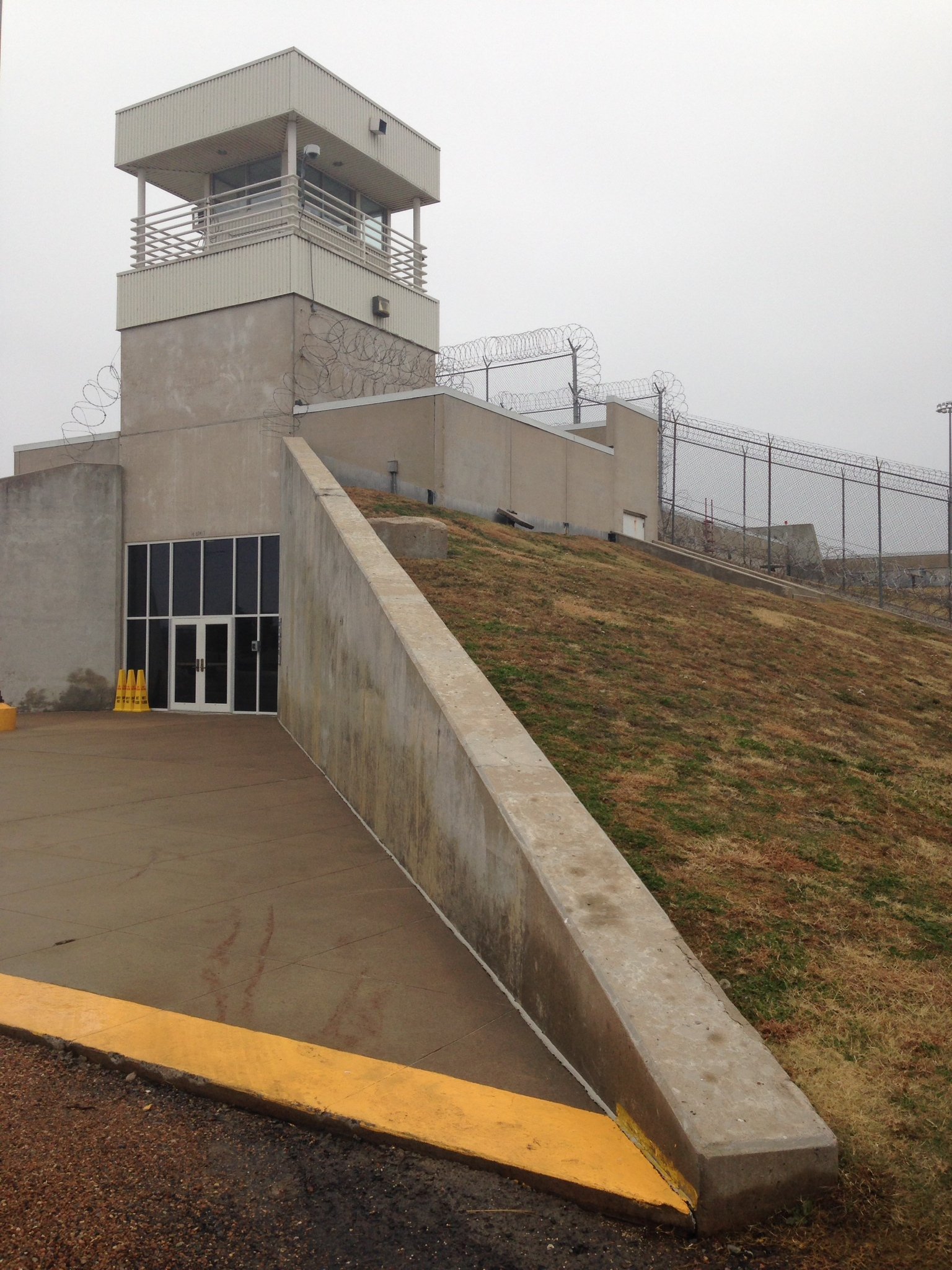July, 2019

OKLAHOMA CITY – Attorneys from the ACLU of Oklahoma, Prison Law Office, ACLU National Prison Project, ACLU Program on Freedom of Religion and Belief, and Sidley Austin, LLP, sent a demand letter on July 29, 2019 to the Oklahoma Department of Corrections calling on the department to address the inhumane treatment of people condemned to death at the Oklahoma State Penitentiary in McAlester, OK.
The H-Unit is an underground bunker at the maximum-security prison facility, where people sentenced to death are incarcerated indefinitely in solitary confinement and restricted to their concrete tombs, no bigger than a parking space, for 22 to 24 hours per day. Underground, with no outside exposure or human contact, one prisoner made the comparison of the environment to being buried alive.
The demand letter outlines two claims of unconstitutional policies and practices, with a primary focus on the use of solitary confinement and the automatic transfer of anyone sentenced to die to the maximum-security H-unit facility.
“Studies have shown that long-term isolation exacerbates mental illness – or even causes it in those who were healthy when they entered solitary,” said Megan Lambert, Gallogly legal fellow at the ACLU of Oklahoma. “The men in H-Unit are suffering due to the years they spend there – their minds and bodies are irreparably damaged by the inhumane use of solitary confinement as they wait for the State to overturn their conviction or execute them. This policy is needlessly cruel, serves no purpose, and flies in the face of the Constitution.”
“Correctional professionals across the country recognize that the people sentenced to death are usually among the least violent and most docile,” said Donald Specter, Executive Director of the Prison Law Office, a nonprofit organization based in Berkeley, California, that advocates for constitutional conditions in prisons, jails, and juvenile halls across the country. “Multiple states have had success mainstreaming death-sentenced people or eliminating automatic solitary confinement for them, including Missouri, North Carolina, Colorado, Arizona, and Virginia. There is no reason Oklahoma cannot do the same.”
The letter also objects to the prison’s policy barring congregate religious worship services for those on death row. The blanket ban on group worship is unnecessary and violates the religious-freedom rights afforded to all prisoners under the Religious Land Use and Institutionalized Persons Act, a federal law that provides heightened legal protection for incarcerated individuals’ religious practice. Several states successfully provide congregate religious services for prisoners housed in death-row units.
The conditions described in our demand letter violate constitutional rights, human rights, and basic human dignity. But the ODOC has a chance to resolve these violations without ligation. We urge ODOC Interim Director Scott Crow to address these issues and demonstrate that the Oklahoma Department of Corrections can be a leader in keeping our communities safe while also protecting the rights of all Oklahomans, including those incarcerated.